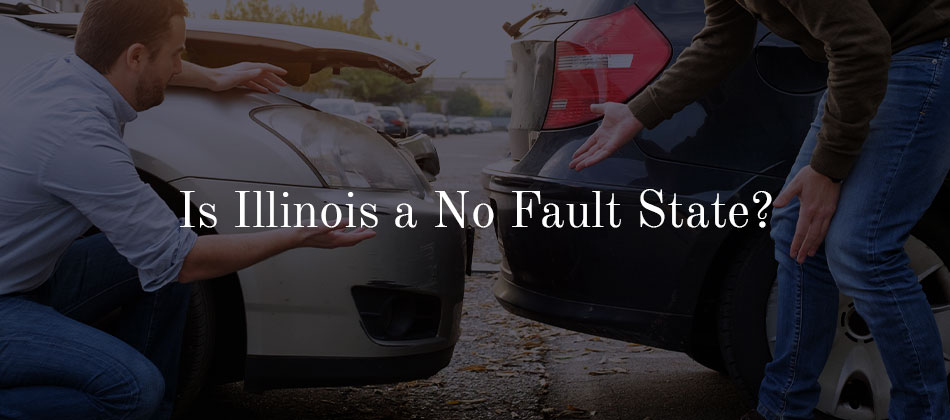Is Illinois A No-Fault State?
Motor Vehicles Accidents - February 19, 2019
Some states follow no-fault rules for car accidents, meaning a driver who sustains injuries and property damage in a car accident would file a claim against his or her own auto insurance policy regardless of who caused the accident. Drivers in this situation would only have the option of pursuing additional legal action beyond a personal insurance claim if they meet their states’ requirements for doing so. Typically, this means the driver must have sustained a severe injury (according to state definitions) to file a lawsuit against an at-fault driver.
Is Illinois A No-Fault State?
Illinois is not a no-fault state. Illinois uses a fault-based system for handling car accident cases. An injured driver would generally file a claim against the at-fault driver’s insurance policy after an accident. Like other fault-based states, Illinois requires all drivers to purchase and maintain individual auto insurance policies that meet the state’s minimum requirements for liability coverage. Before a driver can file a claim against another driver’s policy, the claimant must prove fault for the accident.
Proving Fault for a Car Accident in Illinois
Whenever one party causes economic damages or injuries to another party, the injured party can pursue a personal injury claim against the at-fault party in accordance with state laws. Because car accidents are a foreseeable and common risk of driving, states require their drivers to maintain auto insurance to mitigate the cost of damages in a car accident case. If the damages in a car accident fall within the scope of available coverage, there is generally no need for a lawsuit. However, if a victim’s damages exceed the at-fault party’s available liability coverage, the injured party may file a personal injury lawsuit to recover the remainder.
Proving fault for a car accident follows the same steps as any other type of personal injury case. The injured party’s attorney must prove the defendant owed a duty of care to the plaintiff in the given situation but breached that duty and caused injuries to the plaintiff. The plaintiff’s Chicago car accident attorney must also prove the plaintiff’s injuries only happened due to the defendant’s negligence and not some other cause. In a car accident claim, a moving violation, speeding, aggressive driving, or driving under the influence are just a few possible examples of negligence that can lead to insurance claims and lawsuits.
Illinois’ fault-based system means that an injured driver must prove the defendant caused his or her damages; however, Illinois also follows a comparative negligence law. This means a plaintiff could potentially absorb fault for his or her own claimed damages if a case reveals that he or she played any part in causing those damages. As long as the plaintiff’s fault does not exceed the defendant’s, the plaintiff can still claim compensation but loses a percentage equal to his or her fault percentage.
Minimum Insurance Requirements for Illinois Drivers
Illinois requires all drivers to carry auto liability insurance for use in the event of an accident. Every driver’s policy must allow for the minimum coverage amounts required by Illinois law.
- An auto policy must provide at least $25,000 bodily injury and wrongful death liability coverage for one person injured or killed in an accident caused by the policyholder.
- A policy must also provide at least $50,000 in total accident coverage for bodily injuries and wrongful deaths in an accident the policyholder causes.
- Auto insurance policies must provide $20,000 or more in property damage coverage in an accident caused by the policyholder.
These minimum coverage amounts may seem like a reasonable amount of coverage for an accident, but the resulting medical expenses, lost income, and pain and suffering a victim could experience can easily eclipse the available coverage in a minimum policy. Purchasing additional coverage or special coverage options comes at the cost of higher monthly premiums, but in exchange the policyholder has more flexibility in the event of an accident with another driver.
Ultimately, every Illinois driver should carefully consider how to balance the cost of premiums with adequate coverage. If you have been in a car accident and want to know your legal options, contact our team of dedicated Chicago personal injury lawyers.



